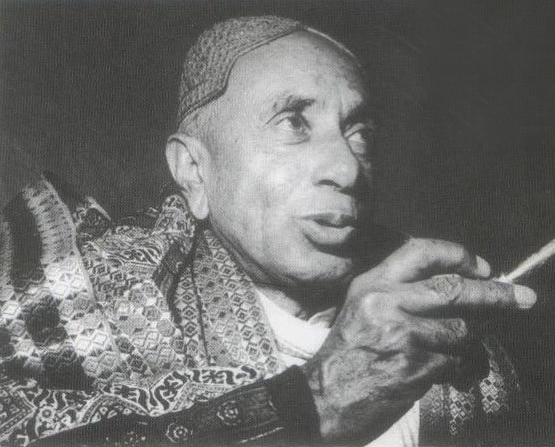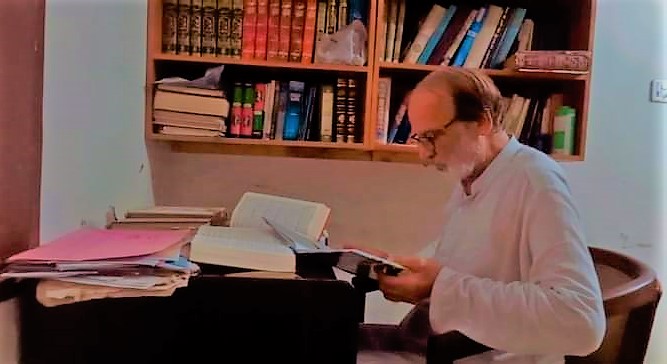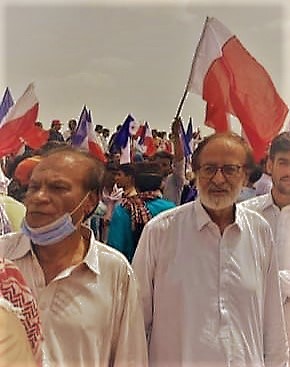
GM Syed never pulled up gratitude
[Author’s Note: Will and Ariel Durant’s book – The Story of Civilization’s first volume appeared in 1935 and a complete set of eleven volumes was published in 1975. The authors took more than four decades to complete the manuscript. The readers well received the book. Therefore, their presence was sought in radio shows and press briefings. Will Durant has mentioned in one of his interviews that most common question around the globe was: ‘what is most important in human civilization, Intelligence, health or character? Will Durant responded the question that first comes the character, then health, and in the last – intelligence. I believe so, and it is still relevant in all walks of life.
I am of the view that in Sindh’s politics Mr. GM Syed, the nationalist leader and founder of Jeay Sindh Movement, was the powerhouse of ideas, and torchbearer of morality. Let me not shy, and state that he was the only politician, who practiced his ethos across the board, irrespective of political differences, power, age, class, and gender. I had been pondering over to document Jeay Sindh workers’ personal encounters with GM Syed. The present note was narrated by Anwarddin Narai, former General Secretary of the Students Union of Mehran University of Engineering & Technology, and leader of Jeay Sindh Students’ Federation. This is 8th article of this series.]
By Dr. Zaffar Junejo
Tariq Ali, a leading communist ideologue, and a writer called 1960s a decade of street-fighting. The context of his understanding was global activism against the imperialism and Vietnam War. However, in Sindh, one could say that 1980s was the decade of students’ politics. The students’ engagement to some extent played political parties’ role. Till now, none of the scholars have conducted multi-dimensional study on the students’ politics. However, if such research takes place, then one of the focused areas should be the transformational failure of the student politics. Let me hold this topic for a while, and present Anwarddin Narai’s narration, it is about one of least focused social conduct of Saeen G. M. Syed. But, before the presentation, let me introduce Anwarddin Narai. He was one of the students’ leaders of the late 1970s. However, in those times, Jeay Sindh Students Federation’s popular leader was Habibullah Kaboro. Both were students of Mehran University of Engineering and Technology, Jamshoro. After graduation, they joined a government job and got postings at Sann. They were stationed there from 1986 to 1993. At that time, Sann was hub of political workers, and most of the visitors stayed with them, because during 1970s and 1980s they were active student leaders.

Anwarddin Narai told this scribe that ‘one day, their door was knocked.’ He quickly opened it and saw Master Ghulam Qadir Palejo along with a young man and donkey-cart. He invited him to come in, and to have a cup of tea. But the Master declined, and promised that some other day he would visit them. The Master apprised him that ‘Saeen G. M. Syed has sent two sacks of wheat.’ Anwar Narai, enquired from him the purpose. But the Master said that ‘he had no any idea’. In the evening Habibullah Kaboro and Anwar Narai went to see Saeen G. M. Syed. They were regular visitors, if they happened to be at Sann. They asked Saeen GM Syed about the mystery of wheat bags. Anwar Narai recalled that ‘Saeen GM Syed’s face beamed with a smile, and said, “A lot of students and members of Jeay Sindh Mahaz stayed and dined at your place; these visitors ought be my guests, but you host them, so, I should thank, and give you some grains.”

Anwar told that ‘at that time another visitor dropped in, and the topic changed, but we got a reason of wheat distribution.’ He concluded that ‘we received two or three wheat bags after a gap of two to three months, and the practice continued for eight years.’
[author title=”Dr. Zaffar Junejo” image=”https://sindhcourier.com/wp-content/uploads/2021/11/Dr.-Zaffar-Junejo-Sindh-Courier.jpg”]Dr. Zaffar Junejo has a Ph.D. in History from the University of Malaya. He is freelance writer and his areas of interest are post-colonial history, social history and peasants’ history.[/author]
Click here for Part-I, Part-II, Part-III, Part-IV , Part-V, Part-VI,